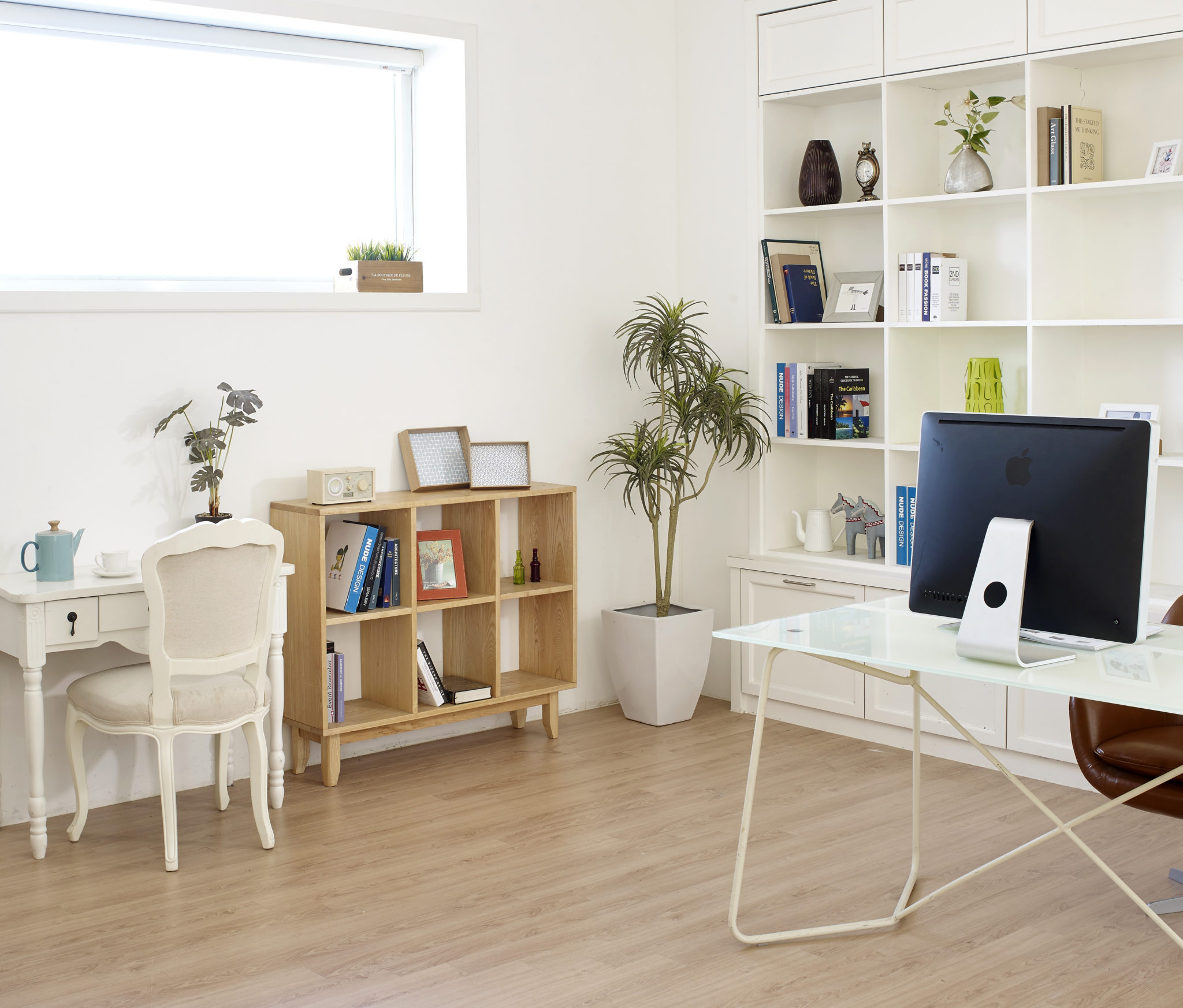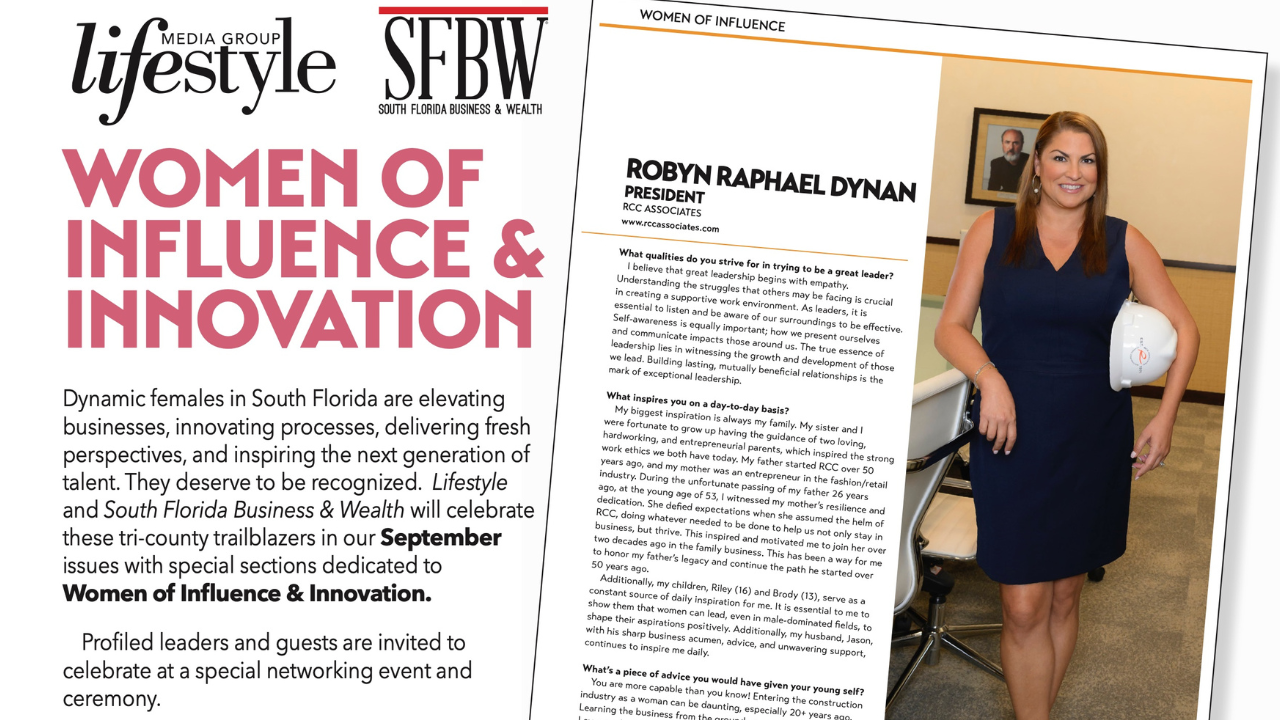
Some kids believe that monsters live under their beds. When Stacey Lewis’ three children were little, and their rooms were messy, they affectionately referred to her as the “monster” in plain sight.
“They’d say, ‘Hurry up and clean your room, or the ‘purge monster’ is going to get it,’ ” Lewis remembers with a laugh.
Though it was an inside joke that referred to Lewis’ penchant for neatness—something she developed growing up in what she calls a “chaotic” household—that love of organization turned serious for the Coconut Creek resident last year.
When Lewis’ grandmother needed to move into an assisted-living facility, she flew home to the Midwest to help her mother. She arrived after an uncle’s sudden death, but amid the chaos, Lewis persevered in her task and felt “privileged” to be able to clear her grandmother’s home and arrange her belongings.
“That experience completely changed me,” Lewis says. “As hard as it was, I loved being able to help my family through that particularly stressful time. And I realized that there are times in everyone’s lives when we all need a little bit of extra help.”
Lewis returned home invigorated with her new passion. She discovered the world of professional organizing and joined the South Florida chapter of the National Association of Productivity & Organizing Professionals. Through it, she met industry professionals and earned certificates in workplace productivity, household management, life transitions and residential organizing.
In December, she founded her own organization company—named, of course, Purge Monsters—combining skills she’s learned through NAPO as well as her experiences working as a bookkeeper, office manager and stay-at-home mom.
“My philosophy meshes with what a lot of what NAPO teaches,” she says of the organization. “Basically, when your living space is decluttered and organized, you free up space and your time, so that your home can support you in living the life you actually want to live.”
Lewis has found a love for offering a judgment-free service to help clients downsize and declutter. By catering to their unique situations and developing maintainable organizing systems based on their thinking styles, she watches “people who were stuck become unstuck.” For one client with attention deficit disorder, Lewis helped create systems that enabled them to develop habits they could use to keep their first apartment in order.
“With almost every client, when things are decluttered, and they create more space for what they want to do now … or place [items] in a new spot where it functions better, it’s amazing the transformation that happens in their emotions and their well-being,” she says. “People become more at ease, more relaxed. They enjoy their homes and their spaces more and they just feel like they’ve got this.”
Contact Lewis at purgemonsters.com.
Coconut Creek Lifestyle asked Lewis for some strategies that families can use to stay organized throughout the school year.
Practice your morning and evening school routines one week before school starts. Adjusting to waking up, eating and getting ready for the day by your leave-for-school time is a great way to ensure no one is rushed, tired or cranky for the first week.
Supplies. Instead of waiting [for supply lists], go ahead and purchase some basic ones. Try to purchase notebooks, folders and binders in enough colors to assign each subject a specific color. This will help your child keep their backpack organized throughout the year.
First Week Paperwork. Keep track of everything sent home by creating a Master Resource Binder. Fill it with clear page protectors and add dividers labeled with the names of each child. Place important paperwork into the page protectors as you receive them from the school. Make copies of anything that has useful information but needs to be sent back, such as discipline plans, teacher contact information and syllabuses for teens. You also can store copies of enrollment forms, emergency contacts and immunization records to reference from year to year. If you like, make a digital version of this binder and make sure spouses and co-parents have access to it.
Family Command Center. Create a designated spot in your home where your family can communicate with each other, keep tabs on schedules, sort mail, and keep life running smoothly. For most families, a large calendar, a whiteboard or notepad, and an inbox system for sorting mail and paperwork are sufficient. Many families today create digital command centers with calendar sharing and group messaging apps. If this is you, make sure you still create a physical place in your home for children to place paper items that need your immediate attention and check it daily.
Create Stations. Keep these stations well-stocked and place them in the general area of where your child will perform these functions so that cleanup is fast and simple:
- Homework stations should be equipped with everything your child will need to complete their homework. If your child does their homework in multiple areas, create a portable cart or basket that they can carry to wherever they will be working that day. Just make sure that they return it to its designated station when they are finished. In this station, set up a stuff-to-keep box for graded assignments, completed art, old tests and more. Throughout the year, encourage children to determine if items are still worth keeping and let them toss anything they no longer wish to keep.
- Snack stations can be created by designating a bin in your pantry or refrigerator and stocking it with snacks for your child to eat after school and even on weekends. This station should be easily accessible so that your child can simply grab and go. Use your best judgment on the placement of this station, as some young children need a little help developing self-control.
- Lunchbox stations can be split into two areas, such as one spot for pantry items and one spot in the refrigerator dedicated to lunchbox ingredients. Lunchbox stations make it easy for young children to help their parents pack their lunchboxes and enable teens to tackle the job themselves. It also makes restocking easier for parents as they can quickly see which items are running low.
- Backpacks and extracurricular stations ensure these items have a designated place to “live” during the school year. Remind your children to return these items back into their “homes” when not being used. Doing this will not only keep your home tidy but will also make finding everything a cinch during the morning rush.















